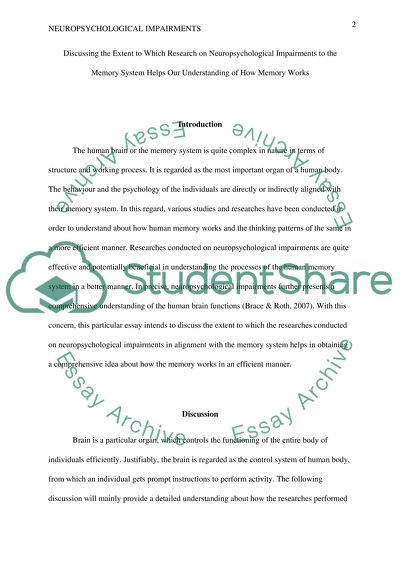Cite this document
(“Discuss the extent to which research on neuropsychological impairments Essay”, n.d.)
Discuss the extent to which research on neuropsychological impairments Essay. Retrieved from https://studentshare.org/psychology/1675758-discuss-the-extent-to-which-research-on-neuropsychological-impairments-to-the-memory-system-helps-our-understanding-of-how-memory-works
Discuss the extent to which research on neuropsychological impairments Essay. Retrieved from https://studentshare.org/psychology/1675758-discuss-the-extent-to-which-research-on-neuropsychological-impairments-to-the-memory-system-helps-our-understanding-of-how-memory-works
(Discuss the Extent to Which Research on Neuropsychological Impairments Essay)
Discuss the Extent to Which Research on Neuropsychological Impairments Essay. https://studentshare.org/psychology/1675758-discuss-the-extent-to-which-research-on-neuropsychological-impairments-to-the-memory-system-helps-our-understanding-of-how-memory-works.
Discuss the Extent to Which Research on Neuropsychological Impairments Essay. https://studentshare.org/psychology/1675758-discuss-the-extent-to-which-research-on-neuropsychological-impairments-to-the-memory-system-helps-our-understanding-of-how-memory-works.
“Discuss the Extent to Which Research on Neuropsychological Impairments Essay”, n.d. https://studentshare.org/psychology/1675758-discuss-the-extent-to-which-research-on-neuropsychological-impairments-to-the-memory-system-helps-our-understanding-of-how-memory-works.


